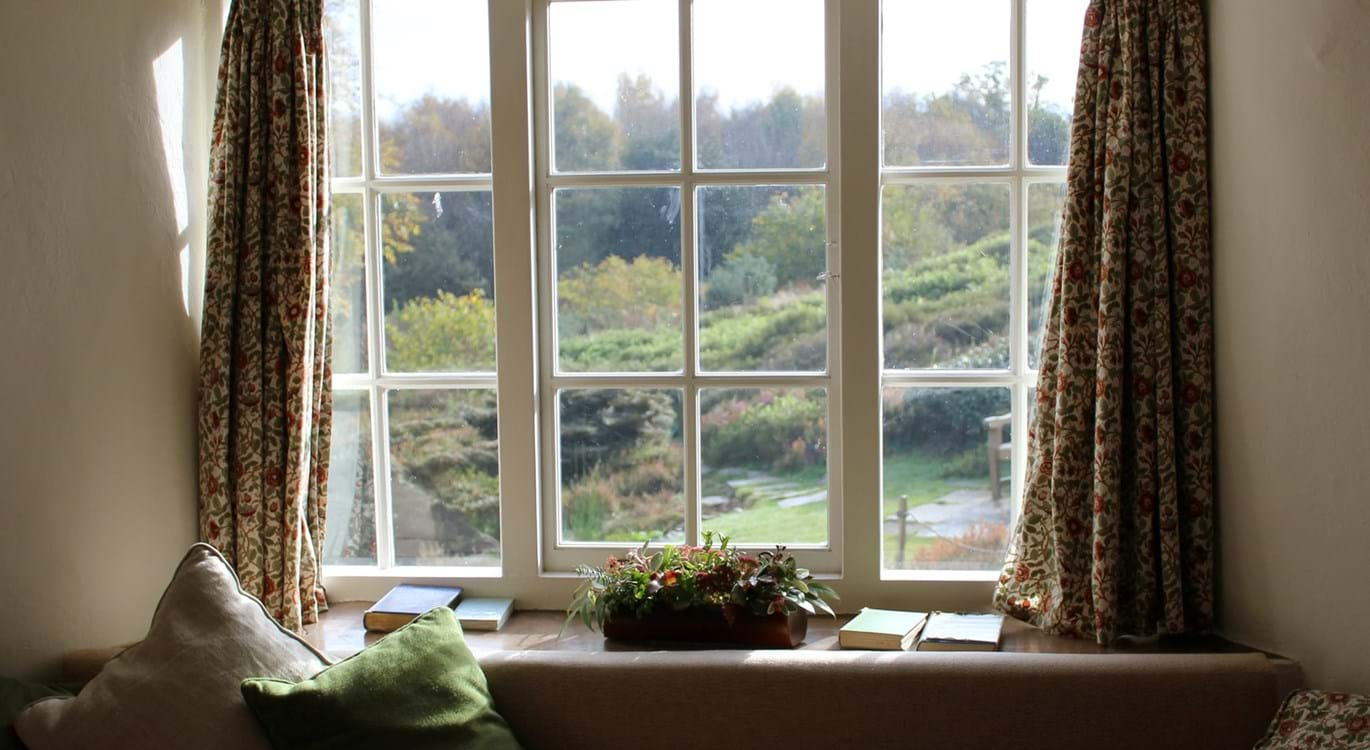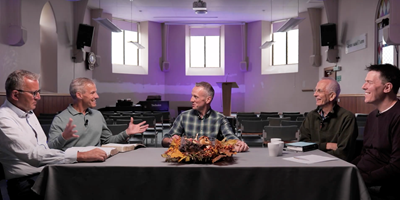From Eden (Genesis 2) to the New Jerusalem (Revelation 21), God has fashioned “homes” for Himself and His people throughout the Bible. It is interesting to see what God considers important in a home. What can we learn from this Master Homemaker who knows our needs and loves us in this way? How could we incorporate His design into our homes? Here are a few practical applications that are easy to put into practice right away.
Make the Bed – Leave beauty and order behind you
The first thing God did when He fashioned this planet we call home was to order and arrange, infusing beauty into all of creation (see Genesis 1). We, likewise, benefit from beginning here. The quaint old-fashioned idea of making the bed is important, not because of the task itself, but because it is one of the first things we can do in the day. It allows us to bring order and beauty to our day and our space and our mind within the first few minutes of waking. It is one of the simplest ways to apply the general principle: “Leave beauty and order behind you”. Living out this principle enables us to leave a gift for the next person, bringing pleasure and surprise to whoever happens upon it, which encourages us to keep on doing it, everywhere we go. “Why my bed, though?”, you ask. “What does it matter? Who will see it? And how long will it last?” It is significant that in the biblical homes God created for us and Himself, beauty and order were inherent, and maintenance was required. Don’t be fooled to think that, because there is the possibility that no one other than you will see this work, or because it will only be undone at the day’s end, it isn’t worth doing. Mundane, repetitive work that accomplished something beautiful, albeit temporary, was a very significant part of God’s homemaking program throughout the Bible. Large doors turn on small hinges, and by starting small with this simple habit, bed-makers become world-changers. This first accomplishment of the day paves the way for many other menial acts of service that are done in love. Additionally, this is a way to prepare your space for the Lord’s use without knowing exactly when and how He will use it. These small acts done in love are tools in the hands of the Lord and, just as He used the upper room that was found swept and ready for the last supper, so with us He can use something that is ready and available in a most wonderful way.
Open the Blinds – Let the light in
Consistently throughout the New Testament we are encouraged and commanded to live in the light. God is light (1 John 1:5). And God has included the light in each of the homes He has prepared for us. Heaven sounds as though it is dazzling with the light that comes from God Himself (Revelation 21:23). A very simple way of bringing a little bit of heaven into our homes is to open the blinds and let the light in. But this physical light can remind us to live in the light in every way. The Word of God is a light (Psalm 119:105) – is it a significant part of the workings of my home? Let the light in! The works of darkness that would sneak in unnoticed and hide in the shadows need to be put out with the rubbish. Get rid of the darkness (see Romans 13:12). But what of the darkness that hems us in at day’s end? How do we let the light in then? When the darkness is lurking, it’s time to light the lamps and trim the candles. There is comfort in being close to the glow, in that circle of light. Similarly, spiritual darkness is all around us – we live in the world, even though we are not of it (see John 17:15-16). When the darkness hems you in, light the lamps and trim the candles. Let His Word keep the light on in your heart.
Set the Table – All things are ready, come!
If you look at a table as simply the sum of the parts – four legs and a top – it seems fairly insignificant. But there is something about gathering that reaches deep into our hearts and serves to bind us together. The table is a place of gathering and is symbolic of fellowship in the Bible. It speaks of care and love expressed in practical ways: words (heart sharing), and physical nourishment. Tables tell stories, they become a means of hosting the most unlikely guests, they remind us of God’s provision and care. The table is God’s chosen gathering place for us in His house now. This is where we remember that the Lord gave Himself for us, and at the same time maintain community with our brothers and sisters (see 1 Corinthians 11:23-26; 33). So tables are special. Gathering centres are valuable. And we do well to use them to this end. Set the table. Create a place of fellowship and gathering and care. Arrange it. Pay attention to the atmosphere. Use beauty and light and personal touches to encourage fellowship. Mealtimes aren’t always easy, and peace and quiet are often a distant dream when there are lots of little people about, but even the simple effort of preparing the table communicates to them that they matter and you’re interested in fellowship, even with them. In some ways, gathering around a prepared table is one of the most important ways to say: you have a spot here, you belong – we are in this together. This was David’s chosen method of extending grace to Mephibosheth (grandson of Saul, who had sought David’s life) and banishing his fears: Mephibosheth, who felt so unworthy, always had a place at David’s table like one of the king’s sons (see 2 Samuel 9:7-13). We too, can offer our table with welcoming grace to those we come in contact with each day.
Open the Door – Expect the unexpected
The welcome felt in our homes has to start in our hearts. How do we communicate welcome? Open yourself up to expect the unexpected. Isaiah chapter 55 verse 9 tells us that His ways and thoughts are higher than ours. God has a way of interrupting our intricately laid plans with His opportunities that are of far greater importance, but often seem somewhat inconvenient. Your house is a lighthouse in your neighbourhood. It has the lingering scent of God to those who visit. It is a hospital for the sick, an oasis of friendship for the lonely. It is a base of security to work from and return to in your interactions with the world. Rather than you serving it, it is meant to serve you, providing refreshment and rest. It is a tool that you can place into the hand of God. But it can also be a trap, an idol, a distraction, a hoarded and well-kept secret that only serves you and yours. It is striking that the gates of the New Jerusalem are open (Revelation 21:25). Openness and welcome are God’s idea – how often does He invite, urge, reassure, and plead with those on the outside to come in? Paul is always exclaiming about the excitement of his task – to take the good news through the door to those on the outside and invite them in! Whether going out to reach the multitudes or urging them to come in, we must open the door. We must open our hearts at the same time. And we must expect God to use this tool however He pleases to accomplish His work in this world.
The day begins. Savouring a few minutes before putting feet to floor, I talk to the Lord and my thoughts wander to this day. How true that I do not know what a day will bring forth. Despite the temptations to predict and plan every minute detail, I know that His ways are not my ways, and He knows better than I what is highest priority – to cultivate this attitude: not my will, but Yours be done. My home might be just what He needs to fulfil His purpose in me this day – for my family, for my neighbour, for my community. What can I do so that it is available and ready? I can make the bed! I can leave order and beauty behind in every place I go for whoever comes along. I can open the blinds as I sit down and read His Words to me – I can let the light in! And then I can set the table and put out the invitation to whomever is in earshot: all things are ready, come! With these small and seemingly insignificant actions, I can open the door of my heart and my home to expect the unexpected.





























